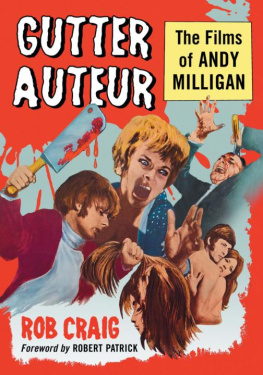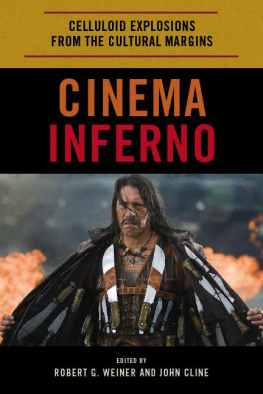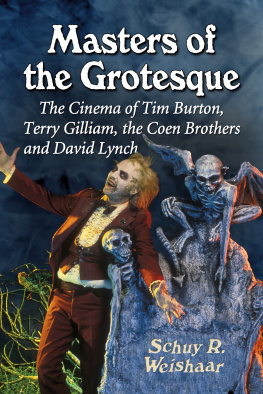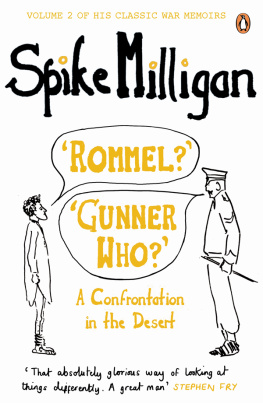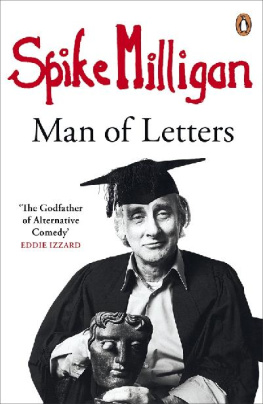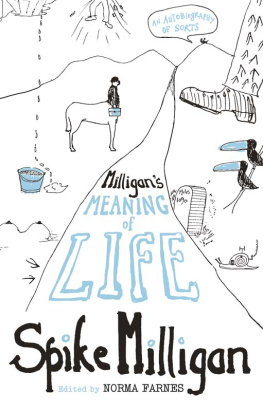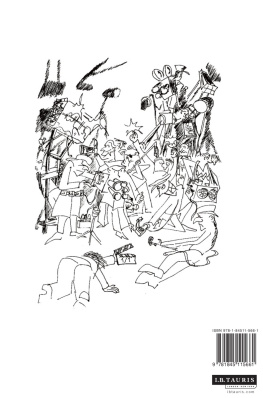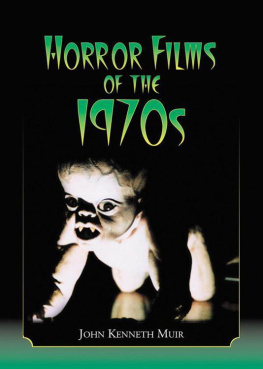The Films of Andy Milligan
Rob Craig
Foreword by Robert Patrick



............................................ iX
................................... 1
...................................................... 3
................................................. 7
.................................... 11
...................................... 15
.......................................... 32
................................................... 45
................................. 52
..................................... 72
................................... 89
............................................. 120
.................................. 133
................................... 146
............................... 152
............................... 167
.................................. 179
....... 189
........................... 202
.............................. 221
............................................. 229
.................................... 242
.......................................... 247
.................................... 252
........................................ 265
................................................ 275
... 283
CHAPTER .............................................. 285
............................................... 293
...................................................... 295

The author would like to extend his thanks to the following people, without whose contributions and support this book would not exist; to Jimmy McDonough, whose biography on Andy Milligan was a long-awaited revelation for all film lovers- and the inspiration for this project; to Robert Patrick (the only Milligan colleague, among several I contacted, who was gracious enough to respond), for his encouragement on this project, and for supplying a most perceptive foreword, which reveals much about the "real" Andy Milligan; to cultfilm trailblazer Tim Lucas, whose extraordinary three-part essay on Andy Milligan in Video Watchdog stands as the first serious critique of the filmmaker's body of work; to Bill Landis and Michelle Clifford, the first to intelligently articulate the cultural value of "trash film"; to devoted Milligan archivist Ian Sundahl, for providing rare material for review, most of the images which grace these pages, and invaluable editorial feedback; to my wife, Elisa Vegliante, whose impassioned belief in the ageless value of creative effort never fails to keep me centered.

by Robert Patrick
The first moment I entered the Caffe Cino, on the afternoon of September 14, 1961, Andy Milligan was rehearsing with the Cino's star actor, Neil Flanagan, a scene from The Importance of Being Earnest, to be done at an uptown theatre called the Cubiculo. Andy (and Neil) worked at many such theatres around town, places without much character or personality, but they kept coming back to the Cino, where the whole idea of Off Off Broadway or "Underground" Theatre was forming. Neil adjusted better than Andy did to the revolution around them. Especially, Andy was upset by openly gay plays like Lanford Wilson's The Madness of Lady Bright, for acting in which Neil won a well-deserved "Obie" award from The Village Voice. Oddly, Andy's very first movie, Vapors, was from a script about gay men at the baths written by the Cino's incredibly elegant waitress, Hope Stansbury. After that, all the gay men in Andy's movies or plays were drag queens, "shriekers," "pansies," or "bitches." I think a bitter maladjustment to being gay was at the core of much of Andy's life. In personal encounters, I found Andy professional, paranoid, distrustful, angry, a bit of a control freak, and, toward the end, pathetic.
Professional: when the evening dress an actress brought to the Cino for my play New Works was insufficiently stylish, couturier Andy, who was hanging about because his friend Neil was directing, literally grabbed a swatch of bold print fabric from his satchel, whipped it around the actress, and with only a couple of safety pins, sent her onstage looking fit for Vogue! He wouldn't so much as let me thank him.
Paranoid: once, sitting in the light booth at the Cino chatting with Andy, I mentioned that I had found one of his film scripts rather operatic and would like to try putting it onstage. He turned scarlet-faced, and, as if I had insulted rather than complimented his work, screamed, "You all hate my movies! My movies are good! They offer sexual release!" and stormed out.
Distrustful: I once dropped in at a strange little theatre Andy briefly had at 4th Street and Bowery. It was near Easter and he said he had lost his Easter play and needed one. I lived a few blocks away and said I had a suitable one and would be back with it. When I got back, he had given another playwright the date. When I asked why, he said, "I thought you were lying and wouldn't come back."
Angry: once I found myself alone with Andy and a very handsome Cino actor in an apartment (I can't recall if it was Andy's or the actor's). The mood was sexual, which was fine with me, but before anything overt happened, Andy revealed flatly that he was "into S&M." I said, genially enough, that I wasn't. He became clench-faced and furious and more or less ordered me out.
Controlling: Andy once asked me to write a film script for one of his "sexploitation" features. I came up with a plot that pleased him. He gave me a hundred dollars and told me, "Don't write little connecting scenes like phone calls or cab rides. They cost as much to shoot as a scene." So I wrote a movie that was just four long party scenes. He called me and said it wouldn't do-because it had no "little connecting scenes like phone calls or cab rides!" I swear he used those same words. I gave him back the money. I could never deal with that kind of control mania.
Pathetic: Towards the end, Andy's productions, whether original film scripts or the classics he continued to do on stage, became bewilderingly personal and/or bewilderingly careless. The last play I saw at his theatre was some Shaw piece. The floor was so dusty the actors were trailed by clouds everywhere they went, and the period costumes so ill-maintained, they were literally tearing and slipping off of the players during the show.
I know he was at that point also producing rather bizarre original plays by at least two writers who also happened to be Irish Catholics. I always felt that point of origin was at the heart of much of Andy's life and work, but I am informed that Andy was in fact from a Lutheran background. I don't know anything about Lutherans, and I feel now that I never knew enough about dear Andy.

